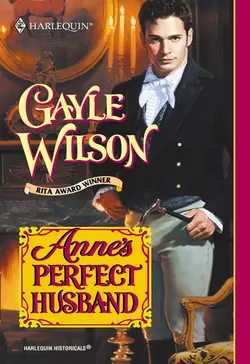Anne′s Perfect Husband

Gayle Wilson
Тип: электронная книга
Жанр: Современная зарубежная литература
Язык: на английском языке
Стоимость: 463.36 ₽
Статус: В продаже
Издательство: HarperCollins
Дата публикации: 16.04.2024
Отзывы: Пока нет Добавить отзыв
О книге: Major Ian Sinclair knew firsthand that war made men do strange things. But to be named guardian of the daughter of the man responsible for ending his career–and very nearly his life?–was beyond the Pale. Yet now Anne Darlington was his responsibility, and he found himself longing for a future he′d thought he no longer believed in…Cloistered in a remote boarding school, Anne Darlington had grown up never knowing any other life. Until fate thrust her into the strong arms of Ian Sinclair, a tortured nobleman whose secret connection to her father threatened her unspoken dream that Ian would someday return her love…and become her perfect husband.